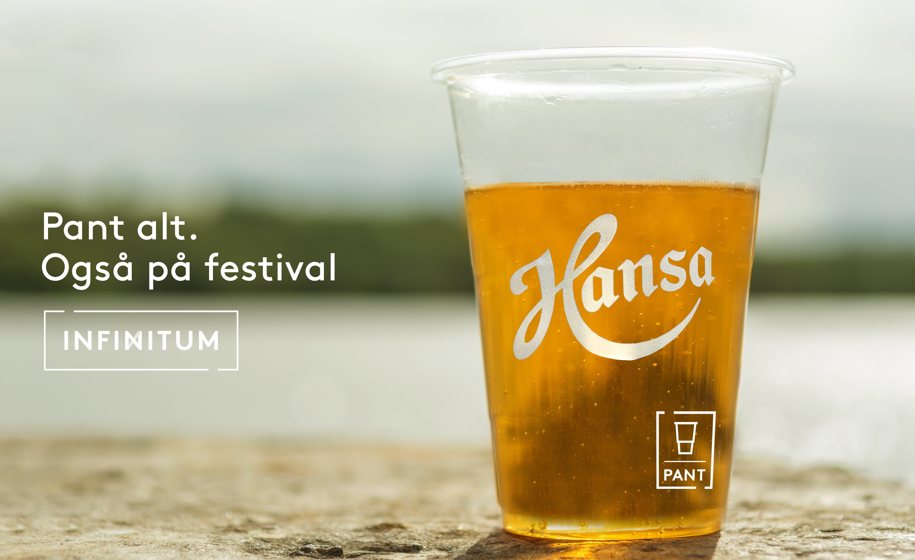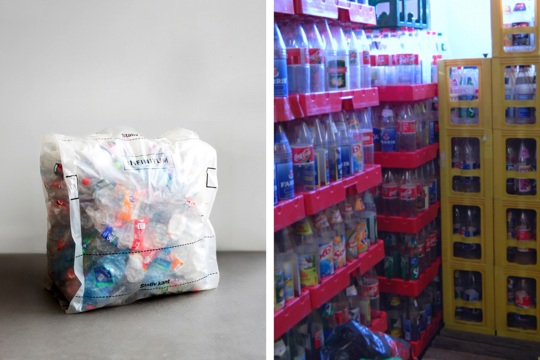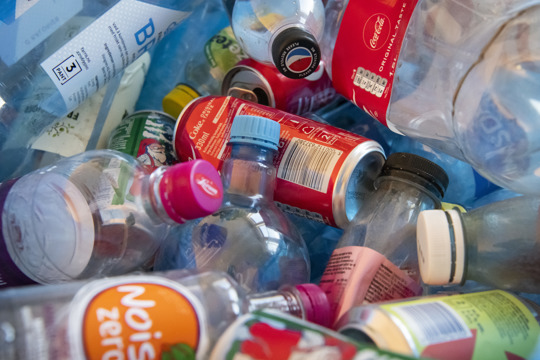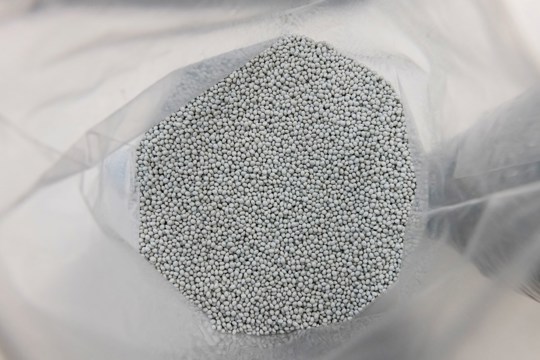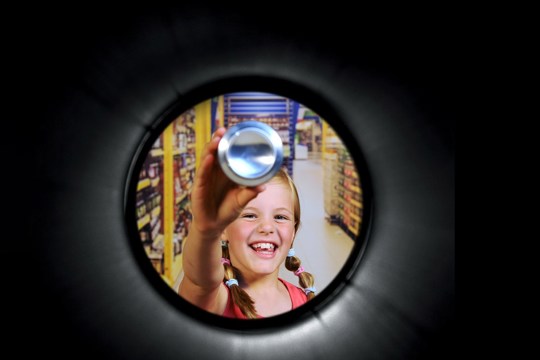Plastic beverage glasses have been an environmental challenge for Norwegian concert organisers. Plastic glasses litter festival sites and, once used, the valuable plastic material has simply been incinerated as trash. The beverage industry found the solution in the world’s best deposit-return system, Infinitum. From this summer, Infinitum can collect plastic glasses from festivals, concerts or other events, and guarantees that everything will be recycled!
Industry initiative
In 2019, Hansa Borg Bryggerier took the initiative for a joint project to find a sustainable solution for festival glasses in Norway.
“Festivals, concerts and major events all make different choices when it comes to the type of beverage glasses and the materials used. The EU’s Single-Use Plastics Directive aims to reduce the use of unnecessary single-use plastic – and if we are to meet this objective, something must be done,” says Stina Kildedal-Johannessen, head of communications and sustainability at Hansa Borg Bryggerier.
The plan to roll out the new solution was ready last summer, but since almost all festivals and events were forced to postpone or cancel due to Covid-19, the parties decided to hold off announcing the solution until this year. They are now looking forward to offering the sector a solution that will help to reduce the environmental impact of concerts nationwide.
Infinitum CEO Kjell Olav Maldum hopes as many as possible seize the opportunity to join the scheme. Beverage glasses made from PET plastic have the lowest carbon footprint of all plastic glasses on the market today, when they are collected back in and recycled.
“Analyses show that recycled plastic glass has a much lower impact on the environment that the alternatives,” says Maldum. “It is the same result as when the beverage industry replaced reusable bottles with recyclable bottles.”
Simple and unbureaucratic solution
Erlend Fuglum, director of the Brewery and Beverage Association, says the solution is good news, particularly for smaller events.
“The new recycling solution is simple and unbureaucratic. At a cost all beverage suppliers and event organisers can easily afford, Infinitum will collect used plastic glasses and recycle them. In this way, we avoid littering, reduce oil consumption and strengthen the circular economy in Norway,” he says.
For event organisers in Norway, it can be hard to find a sustainable solution in a market that offers a great many different plastic materials. The new system solves this problem, no matter how big or small the event is.
“The aim of the new solution is not to introduce an absolutely uniform standard, but to find a system that is better for the environment and accessible for the entire industry and for all events,” says Hansa Borg Bryggerier’s Stina Kildedal-Johannessen.
To achieve sustainable and circular recycling, there is a limit to how much recycled raw material a PET bottle or glass can contain. The new festival glasses from Hansa Borg Bryggerier contain 80 per cent recycled plastic. This is the recommended level to retain the plastic’s technical properties, while achieving optimal materials recovery and recycling. This level also ensures the lowest carbon footprint and environmental impact.
Recycled in Norway
In previous years, 22,000 tonnes of plastic bottles have been shipped to Sweden and Germany for recycling. With Infinitum and Veolia’s new recycling facility outside Oslo, which will open in 2021, all the bottles and festival glasses that are collected back in by Infinitum will be recycled in Norway. This is an important step towards realising a resource-efficient and circular economy for plastic.

